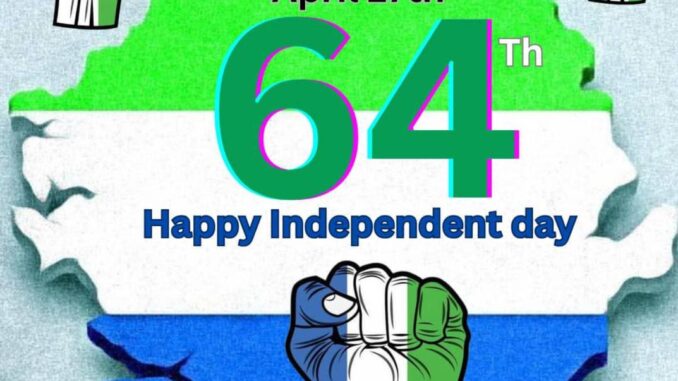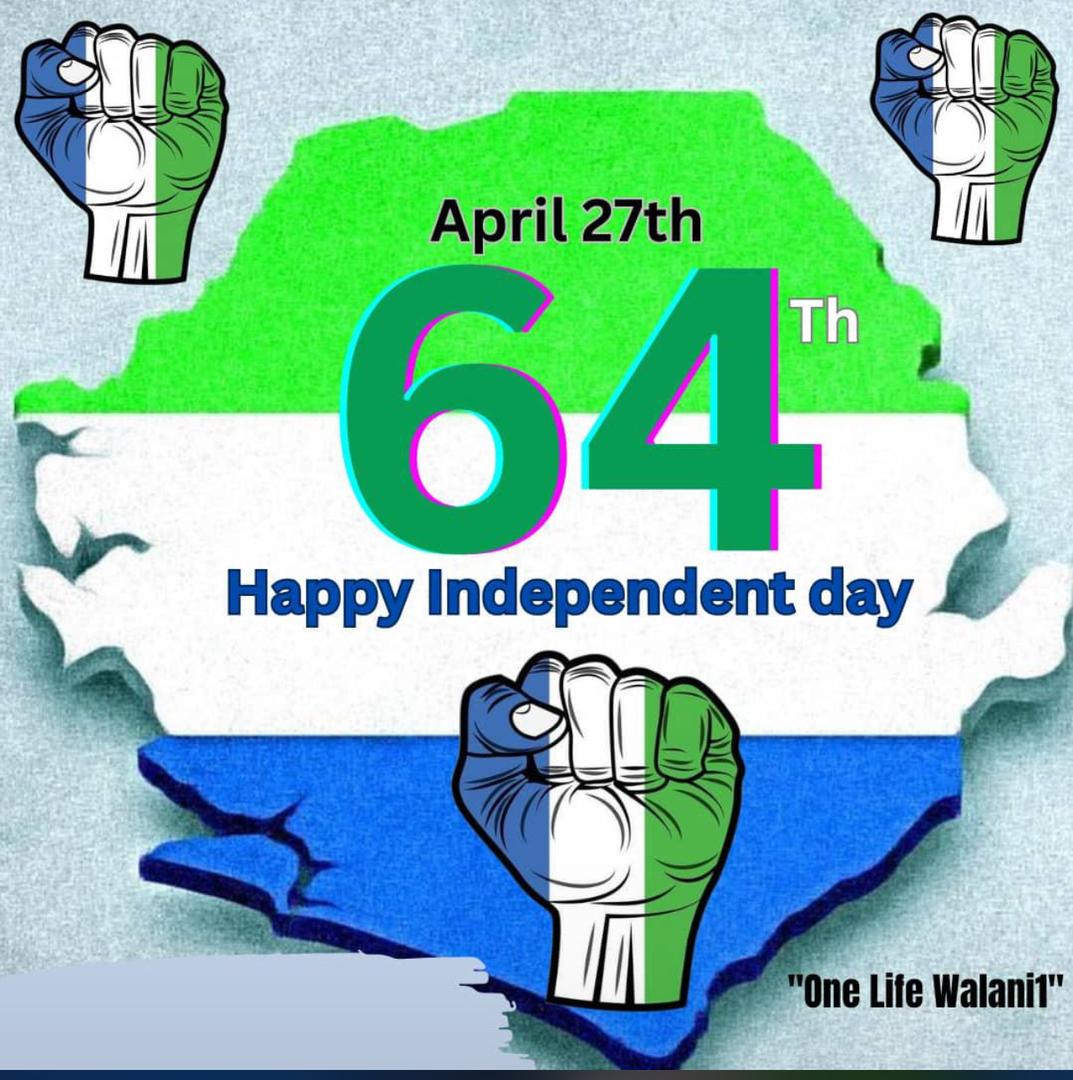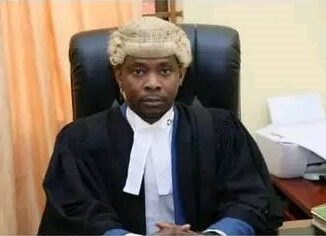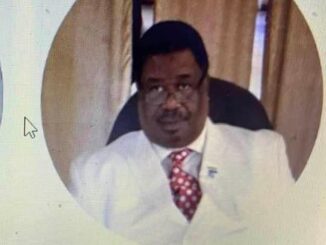
*Sierra Leone at 64…*
*A Nation at the Crossroads of Reflection and Regret*
*By Mackie M. Jalloh*
On April 27, 1961, the people of Sierra Leone danced in the streets, waving green, white, and blue flags, celebrating the end of colonial rule and the birth of a new nation. With optimism swelling, Sir Milton Margai became Sierra Leone’s first Prime Minister, promising a bright future for the new republic.
Sixty-four years later, that hope has largely given way to frustration, disillusionment, and unfulfilled dreams. As Sierra Leone marks another year of independence, the question echoes across the country: what exactly are we celebrating?
Since 1961, Sierra Leone has been governed by a long line of leaders, each leaving their imprint—for better or worse—on the nation’s destiny.
• Sir Milton Margai (1961–1964): A gentle statesman who led the peaceful transition to independence but died too soon to steer the young country firmly.
• Sir Albert Margai (1964–1967): His tenure saw rising political tensions and accusations of tribal favoritism.
• Siaka Stevens (1967–1985): The self-styled “Life President” who transitioned Sierra Leone from democracy to a brutal one-party state under the APC, planting the seeds of corruption and mismanagement.
• Joseph Saidu Momoh (1985–1992): Presided over a decaying state riddled with economic collapse and social unrest, culminating in a military coup.
• Valentine Strasser (1992–1996): The world’s youngest Head of State at 25, Strasser led the National Provisional Ruling Council but failed to end the civil war.
• Julius Maada Bio (1996, briefly): Initially took over as military leader before handing over power to civilians.
• Ahmad Tejan Kabbah (1996–2007): Led efforts to end the devastating 11-year civil war but struggled with post-war reconstruction.
• Ernest Bai Koroma (2007–2018): Promised “Agenda for Change,” but corruption and mismanagement persisted.
• Julius Maada Bio (2018–Present): Returned as a democratically elected President, advocating for “New Direction,” but citizens complain of economic hardship, political division, and slow reforms.
It would be unfair to say Sierra Leone has not made any progress. The country survived one of Africa’s bloodiest civil wars (1991–2002), navigated a deadly Ebola outbreak (2014–2016), and has held relatively peaceful elections since the end of the war. Education reform, media freedom, and some strides in gender equality have also been noteworthy under recent governments.
However, these small victories are dwarfed by overwhelming failures.
• Electricity: In 2025, large parts of the capital, Freetown, still suffer from daily blackouts. The provinces often experience little to no supply at all.
• Water: Despite abundant rivers and rainfall, access to clean, safe drinking water remains a dream for millions.
• Food Security: Sierra Leone, once known as a “Rice Coast” for its agricultural wealth, now imports large quantities of its staple food. Hunger and malnutrition persist in rural and urban communities alike.
• Poverty: More than 50% of Sierra Leoneans live below the poverty line. Youth unemployment remains alarmingly high, fueling desperation and migration dreams.
• Healthcare: Fragile and under-resourced, the health system barely survived Ebola and struggles even today with basic services.
• Governance and Corruption: Successive governments have failed to uproot entrenched corruption, undermining every attempt at national development.
Sierra Leone was once ahead of many African countries that now outshine it.
• Botswana, independent in 1966, transformed itself into one of Africa’s most stable and prosperous nations through good governance and sound economic management.
• Mauritius, independent in 1968, grew from a low-income, agricultural economy into a thriving, diversified one with high living standards.
• Gambia, independent in 1965, though small, has made significant strides in democratic governance and tourism development.
• Rwanda, despite its horrific genocide in 1994, has leapfrogged Sierra Leone in healthcare, infrastructure, governance, and economic growth.
While others pressed forward, Sierra Leone’s post-independence history became a cycle of misrule, instability, and missed opportunities.
*What Exactly Are We Celebrating at 64?*
Today, Sierra Leoneans still scramble for basic amenities their counterparts elsewhere in Africa enjoy as a right.
At 64 years old:
• Electricity remains unreliable.
• Clean water remains a privilege.
• Healthcare remains a gamble.
• Education remains underfunded.
• Food remains insecure.
• Poverty remains widespread.
• Youth continue to flee the country, seeking better opportunities abroad.
While politicians will give speeches extolling “how far we’ve come,” the reality is that for the average Sierra Leonean, daily life remains a struggle. Independence meant the right to govern ourselves; it did not guarantee a better life. The hope of 1961 has curdled into the bitterness of 2025.
Sierra Leone’s 64th Independence Anniversary should not be a time of empty celebrations. It should be a time of deep, painful reflection. How did a country so rich in resources and history come to be so poor and underdeveloped?
Sierra Leone’s story is not over. But unless there is a radical shift in leadership, accountability, investment in human development, and national unity, the next 64 years could very well mirror the lost decades already behind us.
The future can still be reclaimed, but only if Sierra Leoneans demand and build the country they have long deserved—not just free, but truly prosperous and just.





Leave a Reply